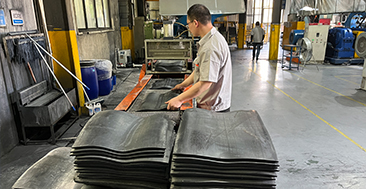Understanding the Importance of Power Steering Oil Pipes for Optimal Vehicle Performance and Safety
ágú . 07, 2024 17:35 Back to list
Understanding the Importance of Power Steering Oil Pipes for Optimal Vehicle Performance and Safety
Understanding Power Steering Oil Pipes Their Role and Importance
Power steering systems are essential components in modern vehicles, providing drivers with the ease of maneuvering their cars with minimal effort. A key part of this system is the power steering oil pipe, which plays a crucial role in ensuring the functionality and efficiency of power steering mechanisms. In this article, we will delve into the significance of power steering oil pipes, their construction, common issues, and maintenance tips.
The Role of Power Steering Oil Pipes
Power steering oil pipes are responsible for transporting hydraulic fluid from the power steering pump to the steering gear. This fluid creates the necessary pressure that assists in turning the steering wheel. The system can be classified into two types hydraulic power steering and electric power steering. In hydraulic systems, fluid movement is fundamental, and that’s where the oil pipes come into play.
These pipes are typically made from high-strength materials designed to withstand high pressure and harsh conditions. Their construction not only ensures durability but also prevents leaks and other failures that could jeopardize steering performance.
Common Issues with Power Steering Oil Pipes
Like any mechanical component, power steering oil pipes are subject to wear and tear. One of the most frequent issues arises from corrosion, especially in regions where the climate can lead to rust or deterioration over time. Furthermore, repeated flexing and vibration from the vehicle’s operation can lead to cracks or breaks in the pipes.
Leaks in power steering oil pipes can severely impact the functionality of the steering system. If the hydraulic fluid escapes, it can create a situation where the steering becomes stiff or unresponsive, posing significant safety risks to the driver and passengers. Additionally, if left unaddressed, such leaks can result in fluid contamination of the power steering pump, leading to further costly repairs.
Maintenance Tips
power steering oil pipe

To ensure the longevity and reliability of power steering oil pipes, regular maintenance is essential. Here are some tips
1. Regular Inspections Check the power steering system, including the oil pipes, for any signs of wear, corrosion, or leaks. Early detection can prevent more significant issues.
2. Fluid Level Checks Make it a habit to routinely check the power steering fluid levels. Low fluid can indicate a leak, necessitating further investigation.
3. Guard Against Corrosion If you live in an area prone to harsh weather conditions, consider applying a corrosion resistance treatment to your pipes and associated components.
4. Professional Servicing Always consult a qualified mechanic for diagnosing and repairing power steering issues. They possess the necessary expertise to handle complications related to the power steering system efficiently.
5. Replacement When Necessary If a pipe is found to be damaged, it is crucial to replace it immediately. Driving with compromised pipes can lead to more extensive damage to the power steering system.
Conclusion
Power steering oil pipes are vital components that contribute significantly to the vehicle's steering performance. Understanding their role, recognizing potential issues, and implementing regular maintenance can help ensure that your power steering system operates smoothly and effectively. By paying attention to these important details, drivers can enhance their vehicle's safety and handling, providing a more enjoyable driving experience overall.
